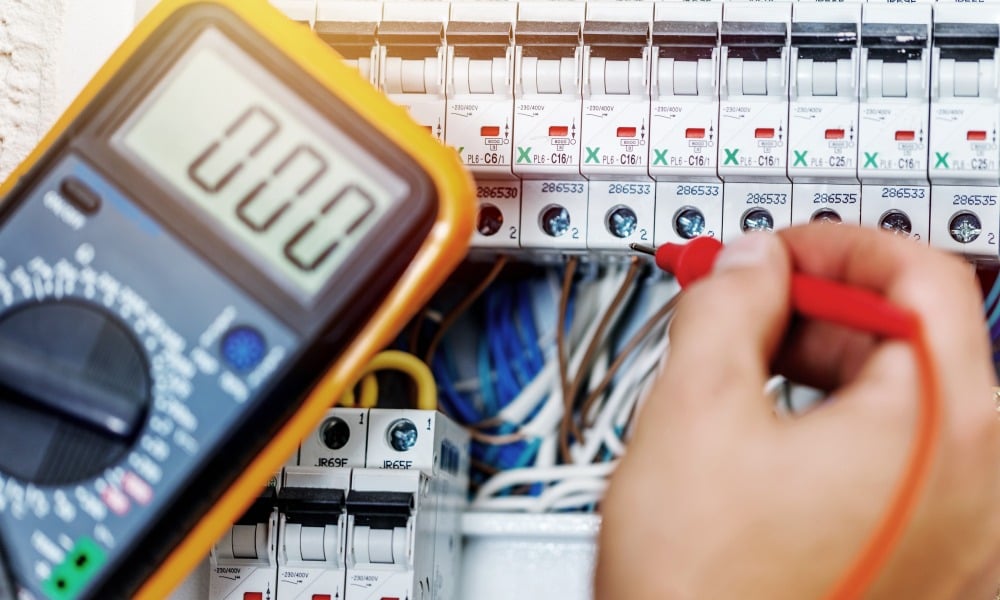5 Strategies for Electrical Contractors in Partnering with Reliable Electrical Equipment Suppliers

Author: Brett Knox
August 1, 2024 - 5 MIN. READ
Today’s supply chain is a far cry from the one you knew in 2018. Back then, the global supply chain seemed to be solid and efficient. As we know all too well, a series of blows, starting with the COVID-19 pandemic, exposed its many weak points.
Following COVID-19 the supply chain suffered subsequent blows from the closing of the Suez Canal, the invasion of Ukraine, the Israel-Palestine conflict, and Red Sea hostilities revealed it as more like a thin spider web. The effects have been devastating for the electrical supply chain.
The global supply chain has recovered to some extent, and prices have stabilized, but they are still edging up. Long lead times persist on items like switchgear and transformers.
Electrical contractors live in a time-constrained world where every project has a contracted schedule with interdependent tasks. Thus, electrical contractors depend on reliable electric equipment suppliers to prosper.
Contractors cannot rely on a single supplier and must develop contingency plans to deal with supply chain volatility. The best plans focus on building mutually beneficial, longer-term partnership arrangements based on aligned business plans and strategies.
This blog will cover key steps to building your supply chain with reliable electrical equipment suppliers.
Strategies for Successful Collaboration with Electrical Equipment Suppliers
1. Establish Clear Communication Channels
First, consider that you and your electrical equipment suppliers depend on each other to prosper. You must foster clear conversations about your business strategy and how they can help you execute it. Ideally, their strategy and capabilities line up with yours. For example, if you’re beginning to do electrification projects, ask distributors about the electrification products they are stocking and selling, which brands and products they are pursuing, and lead times are various product categories.
Illuminate your project volumes and your supply needs. Discuss scheduling demands and potential tight delivery issues. Ask how they plan for the unexpected. Pay close attention to their answers and establish a collaborative approach.
Work to come to a clear agreement and put your mutual expectations in writing in a contract. Agree on timing for regular updates as project needs require. Establish procedures for early warnings of delays and work out contingency plans. For example, you may want to establish a stock of critical items ahead of time.
In today’s market, it is not about squeezing the last dime out of suppliers; it is about creating value through partnerships. When you demonstrate a commitment to longer-term, mutually beneficial relationships, suppliers will be likely to work hard to maintain those relationships.
2. Standardize Procurement
To obtain pricing from your electrical equipment suppliers, use a consistent procurement process, with standardized forms such as Requests for Proposal (RFP). Include a pricing sheet listing each item to be priced, the required specification, and the estimated quantity. Ask for a unit price for each item.
Develop a list of questions outlining your needs. Ask them to highlight their business strategy and reputation for reliable performance. They should cite examples and provide references; be sure to follow up on them. Ask for examples of long-term successful relationships they have in place.
Include these queries in your RFP. Use the same questions for each supplier for comparisons. This questionnaire will form the basis for your conversations.
A computerized procurement platform can streamline this process. It can also provide accurate, high-quality data for evaluations and decisions. You need to become data-driven, and for that, good data is essential.
3. Conduct Rigorous Supplier Evaluation
Make sure to have an objective way to evaluate your electrical equipment suppliers.
Evaluate their responses with members of your operations, finance, and legal teams. Use a standard checklist to keep things objective and consistent. Review pricing for fairness.
Once you have determined the winning bidder(s), award the business subject to contract negotiations. That gives the supplier incentive to agree on terms.
4. Negotiate Favorable Terms and Agreements
Emphasize solid planning and technology to produce superior results.
Focus on Mutual Benefit
Be sure to approach contract negotiations with electrical equipment suppliers with a focus on a win-win deal. Be open to the supplier’s points of view.
When negotiating, always bargain. For example, if the supplier wants a longer-term deal, respond with, “We can do that if you agree to warehouse our supplies at no extra cost.” You can also trade better payment terms for longer contract terms.
Good contracts mitigate the risk of disputes. Work closely with counsel to develop agreed limitations of liability and indemnification clauses.
Use key performance indicators (KPIs) in the contract to detail your expectations. These are measurable criteria to use in determining success and as the basis for ongoing performance meetings. Do not just impose them, but take the time to discuss and agree on them with the supplier.
5. Embrace Technology for Efficiency
In today's world, automating your procurement function is essential. Phone calls, e-mails, and Excel files are just too slow and inefficient. Technology can substantially speed up your processes, standardize them, and add reliability to your process. An e-procurement platform is a must-have.
Choose an easy-to-implement e-procurement platform that is easy to use, or it will not be used.
Look for a platform that includes analytical support for bid evaluations and enables real-time ongoing supplier performance after the contract is in place. This provides transparency you've likely never had before. Finally, look for a platform that helps prevent rogue buying from non-contracted deals that waste your savings.
Electrical equipment suppliers generally find them easier to use as well and appreciate the efficiency. Technology gives them more confidence that their submission is accurately received.
Strengthen Your Supply Chain—Raiven Can Help
A well-planned approach to building sustainable partnerships with reliable electrical equipment suppliers will help you prosper in today’s unpredictable supply chain. Follow these steps to get there:
- Establish clear communication channels
- Standardize procurement
- Conduct rigorous supplier evaluation
- Negotiate favorable terms and agreements
- Embrace technology for efficiency
Look to Raiven to optimize and automate your procurement so that the other four steps are easier to achieve.
By using Raiven's Electrical Marketplace, you can access our online portfolio of pre-vetted, pre-negotiated agreements with world-class suppliers, including Alpscontrols, ChargePoint, Graybar, Ferguson, Grainger, HD Supply, Home Depot, JuiceBox, Lowe’s, Office Depot, Schneider Electric, Sunbelt Rentals, United Rentals, and more, all providing deep discounts of 7%-30%.
You’ll no longer need to evaluate suppliers, negotiate discounts and terms, or research e-Procurement platforms because we do it all for you.
What’s more, the Raiven Platform allows you to track your supplier's pricing and other metrics over time.
If you want to get up and running quickly and forego the time and resources of both building and executing your procurement processes while easily finding reliable suppliers, Raiven is your answer. Contact us today to start saving time and money.


